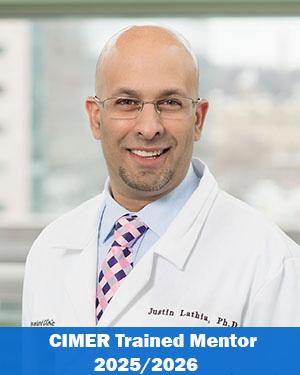Research News
09/17/2020
$10M NIH Grant Will Advance Research Into Sex Differences in Brain Cancer
This new award will fund a research consortium led by Lerner Research Institute and Case Western Reserve University to study differences in glioblastoma between males and females.

A team led by researchers from Case Western Reserve University School of Medicine and Lerner Research Institute has secured $10.4 million over five years from the National Cancer Institute, part of the National Institutes of Health, to explore at the molecular level the differences in glioblastoma between males and females.
The researchers will delve into the genetics, epigenetics and cell biology of glioblastoma-the most common primary malignant brain tumor-to better understand physiologic disease processes, which may lead to more personalized therapies.
The researchers have previously published research showing significant differences between the sexes in glioblastoma incidence, survival and some key molecular pathways. They found that glioblastoma is 60 percent more common in males than in females. In addition, females have a significant survival advantage over males, with a median improved survival rate of up to 10 months. While these sex differences are understood, they are not yet considered when treating glioblastoma.
The research team is led by co-principal investigators Justin Lathia, PhD, Lerner Research Institute, and Jill Barnholtz-Sloan, PhD, Case Western Reserve School of Medicine (CWRUSOM). The team also includes colleagues from Penn State College of Medicine, Washington University in St. Louis and the Translational Genomics Research Institute.
The need for a stronger sex-based understanding of glioblastoma
Glioblastomas are rare, affecting about 3.5-4 people per every 100,000 people in the United States from 2012-16, according to the most recent data available from the Central Brain Tumor Registry of the United States. Despite available treatments, glioblastomas have devastating consequences for patients. The median survival time is 12 to 14 months, and only about 5% of patients survive more than five years.
"We have the molecular profiling technology and the computing and analytical strength to lead in this effort to better understand the role of sex differences in cancer, particularly for glioblastoma," said Dr. Barnholtz-Sloan, the Sally S. Morley Designated Professor in Brain Tumor Research and associate director of Data Sciences at the Case Comprehensive Cancer Center, CWRUSOM. "This next phase of research relies on vast, varied and complex datasets-in animals and humans-and promises to be a game-changer in how we understand the role of sex in tumor formation and disease outcomes. This comprehensive approach has applications to all forms of cancer, as well as other diseases."
"Sex differences are inherent drivers of glioblastoma incidence and survival, and we are taking a multidimensional approach to uncover a better understanding of this differentiation," said Dr. Lathia, vice chair of the Department of Cardiovascular and Metabolic Sciences and co-director of the Brain Tumor Research and Therapeutic Development Center of Excellence at Lerner Research Institute, and co-leader of the Molecular Oncology Program at the Case Comprehensive Cancer Center. "We are incorporating data from tumor cells and their surrounding microenvironment, as well as genetic programs responsible for tumor growth and underlying epigenetic differences that may be responsible for sex differences. We aim to gain a better understanding of how these variables interrelate to better understand disease mechanisms, which in turn defines better diagnostics and more personalized therapies for patients."
Collaboration at the heart of new consortium
The multi-disciplinary project involves established investigators with complementary expertise and a strong collaborative history. Along with Drs. Lathia and Barnholtz-Sloan, participating institutions and their principal investigators include:
- Washington University in St. Louis: Joshua Rubin, MD, PhD
- Penn State College of Medicine: James Connor, PhD
- Translational Genomics Research Institute: Michael Berens, PhD
Three related research projects, undertaken by this collaborative team, will delve into the basic biology and cellular mechanisms that drive sex differences in glioblastoma formation and progression. These projects will inform, synergize and depend on each other. Findings from the labs based on animal models will then be queried against data from human clinical samples across multiple institutions. The vast amount of data generated from these studies requires robust data management and sophisticated data analysis for a comprehensive view of sex differences across these diverse but related inquiries.
Comprehensive findings will inform future clinical research design, the search for targets for new therapeutics or the use of existing therapeutics that may be applied differently depending on a patient's sex.
Adapted from Cleveland Clinic Newsroom.
Featured Experts
News Category
Related News
Research areas
Want To Support Ground-Breaking Research at Cleveland Clinic?
Discover how you can help Cleveland Clinic save lives and continue to lead the transformation of healthcare.
Give to Cleveland Clinic